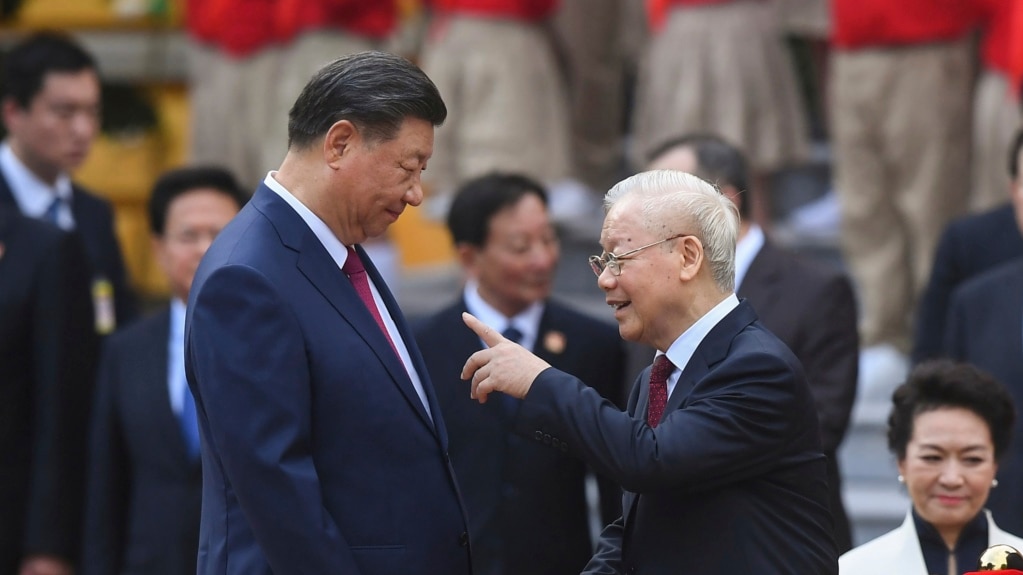Chinese leader Xi Jinping arrived in Vietnam on Tuesday seeking to deepen ties with China’s Southeast Asian neighbor. The meeting visit takes place after Vietnam strengthened diplomatic relations with the United States and Japan.
Xi visited Hanoi on his first trip as China's leader to Vietnam in six years. The two countries signed 37 cooperation agreements. Some experts say this shows that Vietnam's "Bamboo diplomacy" is working. The term describes Vietnam’s desire to have strong roots but to change when needed like the bamboo plant. Both China and the United States are competing for influence the country.
Vietnam agreed to "support the initiative of building a shared future community for humankind," in a joint statement shown to reporters. The countries' diplomats had debated the "shared future" term for months. Officials and diplomats said Vietnam had been unwilling to use the term.
In the Chinese language, the term means "common destiny." But the English and Vietnamese meaning is said to be "common future," which is considered less demanding.
Hunter Marston is with the Australian National University and studies Southeast Asia’s foreign policy. “These symbolic gestures go a long way to reassure Beijing that Vietnam still sees China as its most important partner,” he said.
Xi’s visit marks 15 years of China being a “comprehensive strategic partner” of Vietnam. But Vietnam is calling other countries the same thing as it seeks to avoid being too dependent on China.
In September, U.S. President Joe Biden visited Vietnam to mark the U.S. reaching to the same diplomatic level with Vietnam as China. Biden said the stronger ties were not about balancing China. But U.S. diplomacy across Asia and in the Pacific area has aimed to improve defense and economic ties.
In November, Japan and Vietnam improved their economic and security ties, calling for a “free and open Indo-Pacific.” Japan has been developing closer ties with Vietnam and is its third-largest foreign investor.
China and Vietnam continue to have close economic ties. However, the neighbors have disputes over territorial boundaries in the South China Sea and have a history of conflict.
In a sign of possible easing of tensions, the two countries signed an agreement for joint patrols in the Tonkin Gulf in the South China Sea.
Thirty-seven deals
Reporters who saw the signed documents said the 37 cooperation deals improved relations. However, 45 deals had been proposed earlier, said one Vietnamese official.
Deals included a memorandum of understanding on cross-border rail development.
Top officials in both countries had urged improvement to a rail connection between the southern Chinese city of Kunming and the northern Vietnamese port of Haiphong. The railway crosses areas in Vietnam rich in rare earth minerals that are important for high technology industrial use.
Improving transport links would permit Vietnam to export more to China, including farm products. China wants to further connect the country's north with its southern supply networks.
Chinese companies have moved some operations to Vietnam. The companies are looking to be closer to Western companies there. China also aims to lower risks from U.S.-China trade tensions and avoid an economic downturn.
Xi urged wider cooperation on security, connectivity, energy and rare earth minerals. China is the world's leading rare earth refiner while Vietnam is believed to have large supplies.
The Associated Press says China has been Vietnam’s largest trading partner for several years.
I’m Dan Novak.

